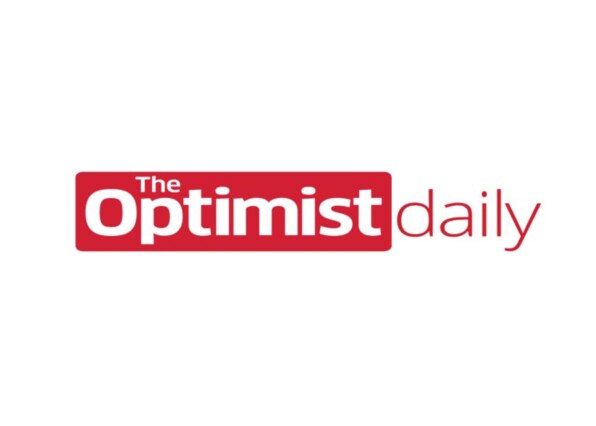Isolation from friends and family is a familiar state for many people after over a year of social distancing and travel restrictions. Even as everything begins to slowly open up again, the serendipity of encountering new people is still muted as we focus on reconnecting with people that we already know and whom we’ve been separated from for over a year.
To combat this, a futuristic, sci-fi-inspired installation developed by the Benediktas Gylys Foundation, a social innovation group, in collaboration with Gediminas Technical University, has been erected in the middle of the Lithuanian capital Vilnius.
The idea behind the large concrete and steel ring is to act as a window into another city — or a Portal — which is what the project is called. The first portal in Vilnius is connected to its counterpart that is placed in the Polish city of Lublin. As people approach the portal in Lublin, they can see people looking right back at them from Vilnius.
Benediktas Gylys, who created and largely funded the Portal project says, “Usually people just smile and wave, sometimes they start competitions about what couple could make a more complex shape of a heart with their hands; dancing competitions happy as well… even the most serious-looking people who look like they have never waved to anyone in their entire lives start smiling and waving with immense joy!”
Gylys was inspired to create the Portal by his own travels, which opened his eyes to the downfalls of the polarizing “us-versus-them” mentality that people are prone to take on when faced with social injustices and oppressive systems. While traveling and experiencing cultures from all over the world, he was filled with the feeling that humanity is one species, and that we shouldn’t classify ourselves as “us” and “them,” but rather simply “us.”
When you think about it, the technology behind the Portal isn’t new or difficult—its concept is basically a large screen for teleconferencing. However, the way in which it is presented and constructed turns the familiar into a new and fresh experience. Plus, there is something quite impactful about seeing someone as they are, on a full 1-to-1 scale.
Portal’s success is also due to the fact that you are able to encounter strangers by chance and gives people an opportunity to meet new people. Zoom and Facetime require planning, or at the very least you have to know the person you want to connect with. According to Gylys, “Portal invites you to meet people who, according to [social media] algorithms, are too incompatible with your persona.”
Gylys plans to construct more Portals in the future, including one in Reykjavik, Iceland, and one in London. He encourages anyone else who is interested in having a Portal built in their own city to reach out.
Source image: Benediktas Gylys Foundation












